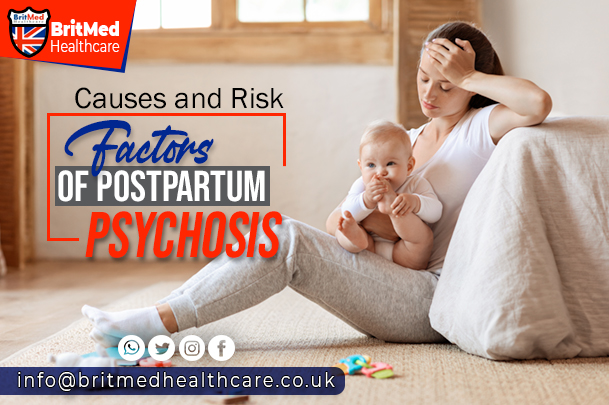Postpartum Psychosis: Symptoms and Implications – a Critical Analysis
Postpartum psychosis is a severe, debilitating mental health disorder that affects one in every 1,000 women in the UK. It occurs within the first months of the delivery date-actually, within four to six weeks after delivery-and manifests through an unexpected onset of psychotic symptoms, including hallucinations, delusions, and disorganized thinking. This paper will be an overview of the symptoms of postpartum psychosis and the implications it has on women and their families.
Symptoms of Postpartum Psychosis
Mostly, postpartum psychosis is misdiagnosed as postpartum depression or anxiety. This may prevent timely treatment and appropriate care from being administered to the patient. However, postpartum psychosis differs from other conditions through being represented by distinctive symptoms. The most common symptoms of postpartum psychosis include:
Symptoms may include one or several of the following:
Hallucinations: something that a person sees, hears, feels, tastes, or smells that isn’t really them
Delusions: a belief that a person holds that is not based on reality
Disorganized thinking: thoughts that are confusing and hard to make sense
Disorganized behavior: bizarre or irrational behavior
Catatonia: complete immobility or inability to move or talk Suicidal thoughts or behavior Homicidal
These symptoms can be severe, in that they sometimes render the woman unable to look after herself and her baby. In some instances, it may also occur comorbid with other mental health conditions such as depression or anxiety, which could further complicate the treatment option and diagnosis.
Causes and Risk Factors of Postpartum Psychosis
While the specific causes of postpartum psychosis remain incompletely known, research indicates that it is invariably an interaction of biological, psychological, and social factors. Those who are vulnerable to postpartum psychosis may have a history of mental health disorders, such as bipolar disorder or schizophrenia, or may have experienced trauma or stress during pregnancy.
Other risk factors for postpartum psychosis include:
-Family history of psychiatric illness
-Previous history of postpartum psychoses
-Social isolation
-Sleep deprivation
-Medical illness
Treatment and Management of Postpartum Psychosis
Postpartum psychosis needs immediate treatment and care. Antipsychotic medication coupled with psychotherapy is considered the gold standard in the treatment of postpartum psychosis (6). Urgent medical attention is necessary for women manifesting symptoms of postpartum psychosis, and they must be referred to a specialist mental health service.
In addition to medication and therapy, women with postpartum psychosis may also benefit from other forms of support, including:
-Social support: Supportive interaction and communication with other women with the experience of postpartum psychosis offer emotional support and self-validation.
-Breastfeeding support: This is a cumbersome process for women with postpartum psychosis, but it is actually an important aspect of mother-baby bonding.
-Home-based care: This will require many women to receive home-based care, as well as support in the management of the symptoms of postpartum psychosis.
Conclusion
Postpartum psychosis is an extremely dangerous and debilitating mental health disorder. Hundreds of women in the UK are annually being afflicted with this condition. A woman’s need for immediate medical care, treatment, and management is very important when she shows symptoms of postpartum psychosis. Understanding symptoms and risk factors will help healthcare providers manage the care and support that woman with this condition need.
References:
Postpartum Psychosis: What It Is, Symptoms & Treatment (clevelandclinic.org)
Postpartum Psychosis – StatPearls – NCBI Bookshelf (nih.gov)
Websites:
Britmed Healthcare: https://britmedhealthcare.co.uk/
Nightingale Hospital: https://www.nightingalehospital.co.uk/
You can also book on Top Doctors UK Contact us on WhatsApp 08009708017
Top Doctors: https://www.topdoctors.co.uk/doctor/ahmed-el-missiry




